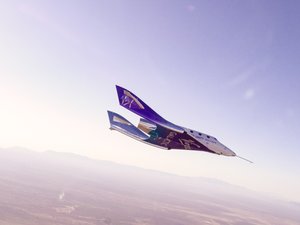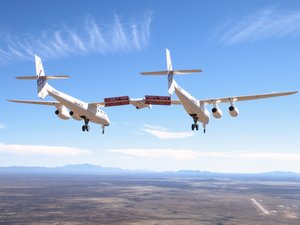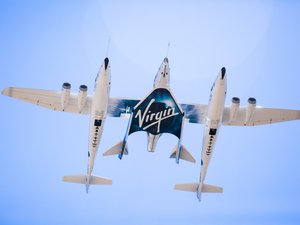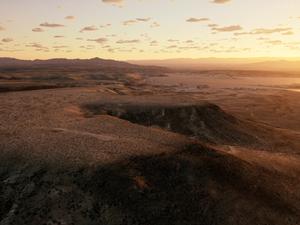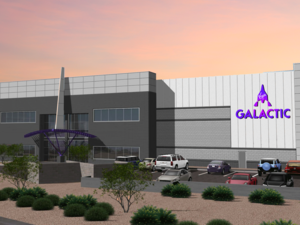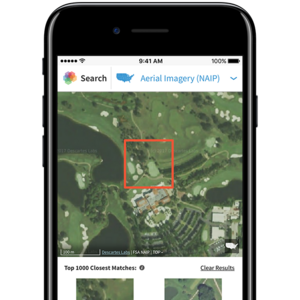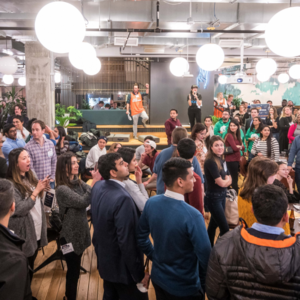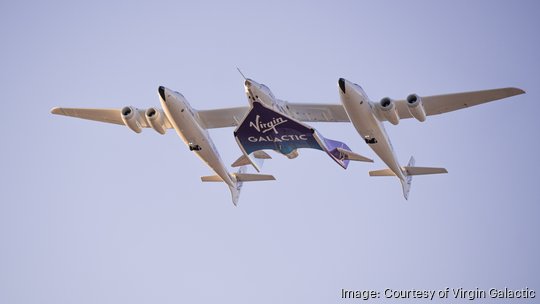
Executives at Virgin Galactic (NYSE: SPCE) on Tuesday touted the "strong returns" of its next generation of spaceships as the company prepares to head back to space through a test flight later this month.
Virgin Galactic announced Monday it plans to fly six people — two pilots and four "mission specialists" — to the upper limits of the atmosphere on a rocket-powered test flight of its VSS Unity spacecraft later in May. That test would be "the final assessment of the full spaceflight system and astronaut experience" ahead of a full commercial flight with a crew from the Italian Air Force planned for June 2023, according to a news release from the company.
But projected finances and updates surrounding Virgin Galactic's Delta-class spaceship program were the focus of the company's first quarter 2023 earnings call, held Tuesday.
"Given the strong returns we see in the Delta-class, investing in this program is our top priority to drive future growth and profitability," said Michael Colglazier, Virgin Galactic's CEO, on the earnings call.
Those returns include an estimated $2.7 million in revenue per commercial flight of a Delta spaceship, which the company is designing to hold six customers at a rate of $450,000 per seat.
Commercial flights with Delta-class ships won't happen for a while, however. Virgin Galactic expects the first Delta-class test ship to be assembled in 2025. It would then undergo a year-long testing process out of Spaceport America before moving into commercial service with the "early ships" in 2026, Colglazier said during the call.
Assembly of the Delta-class spaceships is set to take place at a facility currently under construction near Phoenix. The company first announced that facility last summer.
It's projected to be operational in 2024. In November, Virgin Galactic partnered with a pair of Texas-based companies — Bell Textron Inc. and Qarbon Aerospace — to supply sub-assembly parts for putting together the Delta-class ships in Arizona.
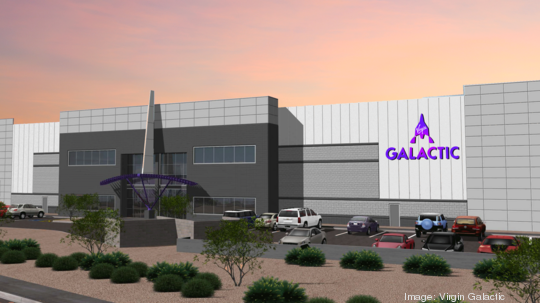
Commercial flights with Virgin Galactic's existing "Unity" line of spaceships are expected to happen much sooner. A paying crew from the Italian Air Force is set to launch out of Spaceport America next month.
But before that can happen, the space tourism company has one last test flight planned for late May carrying six people into space for the first time since Sir Richard Branson, Virgin Galactic's founder, flew in July 2021.
One of the mission specialists that will be on board that flight is Jamila Gilbert, a native New Mexican who joined Virgin Galactic in 2019. The New Mexico State University graduate is an artist and communications professional who will help evaluate the customer experience on board the test flight, according to the company.
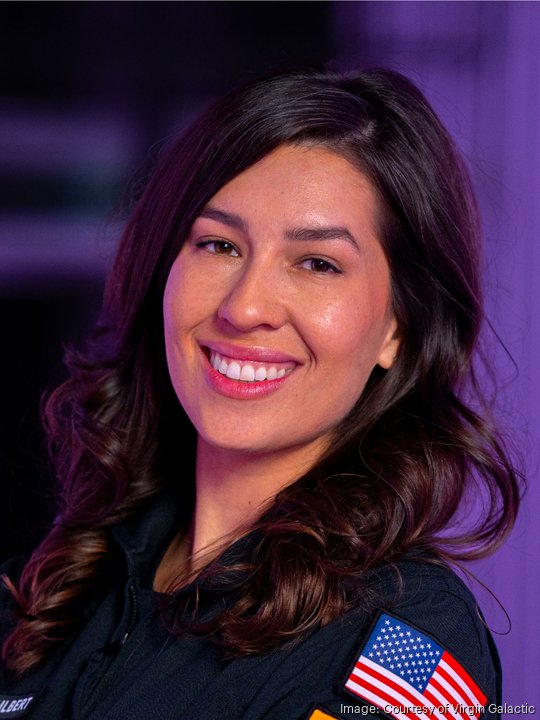
In late April, the company ran a "glide flight" of the Unity spaceship. That marked Virgin Galactic's second flight out of Spaceport America since 2021, in addition to a mated configuration flight one week prior.
It also marked the start of what the company hopes will be a steady cadence of flights to space — one per month, Colglazier previously said.
"We are finally at the cusp of what will be a defining moment for our company — commercial spaceline operations," the CEO said during Tuesday's earnings call.
Virgin Galactic didn't provide any updates on its Southern New Mexico astronaut campus, which the company announced in August 2022.
The company's research and development expenses have continued to rise, Virgin Galactic reported during the call, bumping its expenses in that category above $100 million in the first quarter of 2023. It reported $874 million in in cash, cash equivalents and marketable securities as of March 31.
Shares of Virgin Galactic stock closed at a price of $4.09 on Tuesday, according to MarketWatch. It opened on Tuesday at $4.14. On May 10, 2022, its stock sat at $5.85 and on May 9, 2021, it was at $16.18.
This story was updated to reflect that Virgin Galactic's April 26 glide flight was the second flight out of Spaceport America since 2021, not the first. The company ran a mated configuration flight one week prior to the glide test flight.
